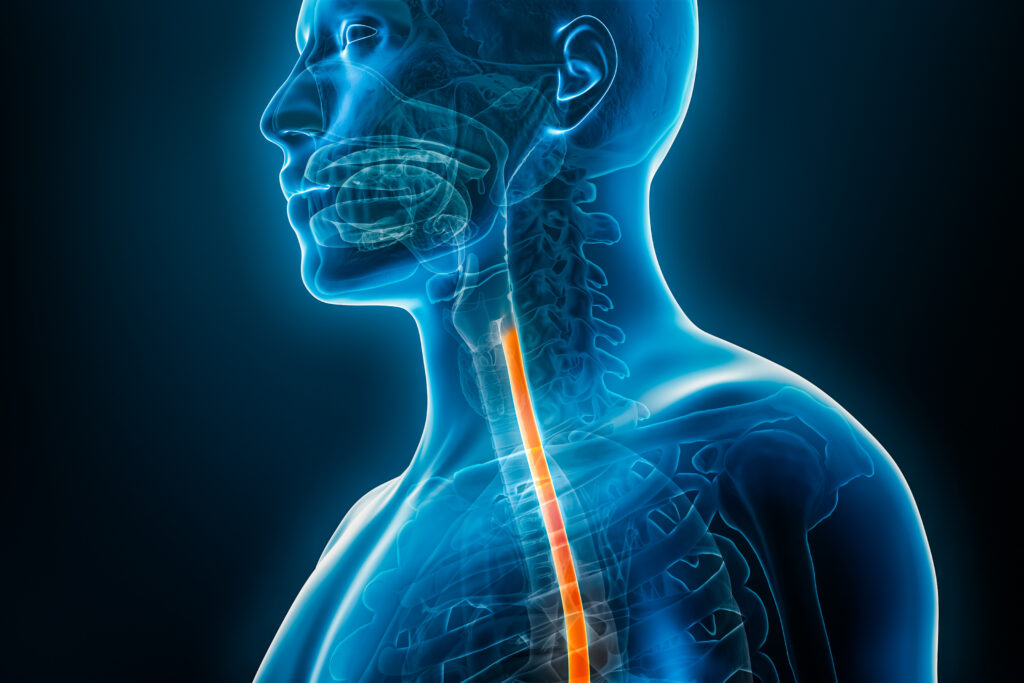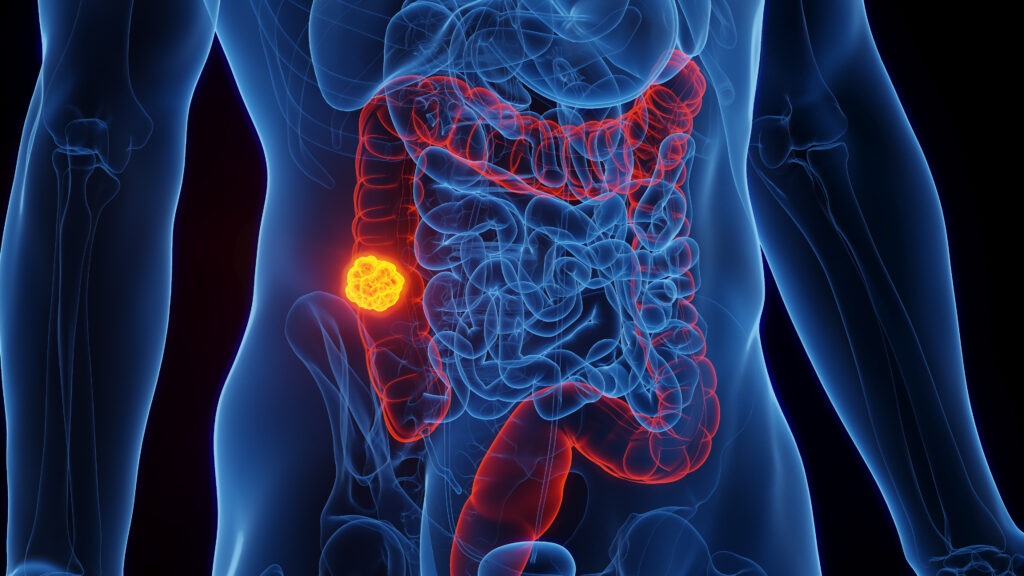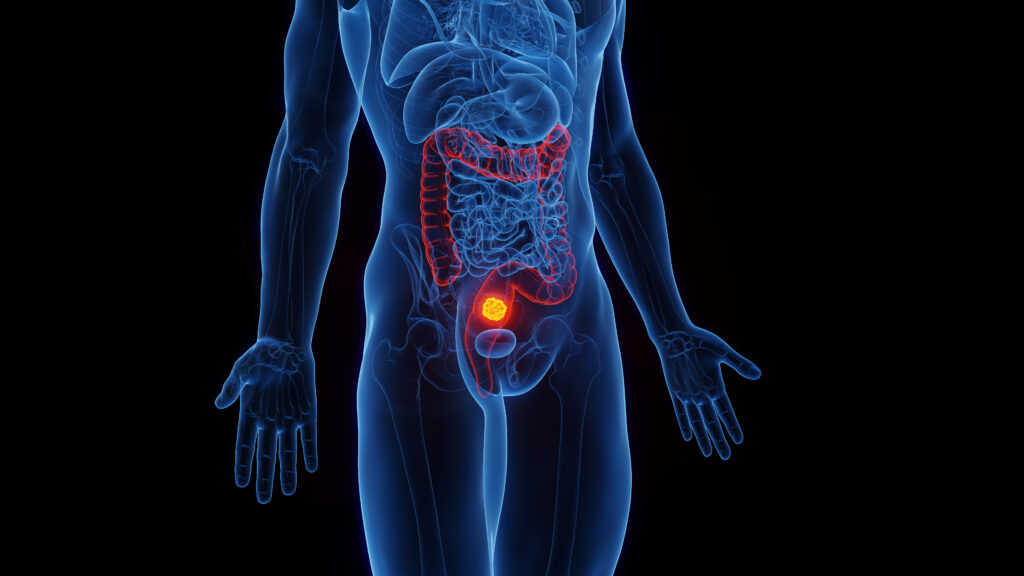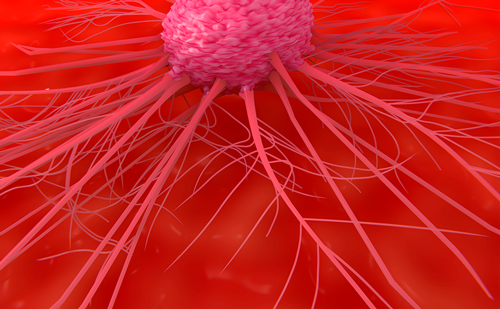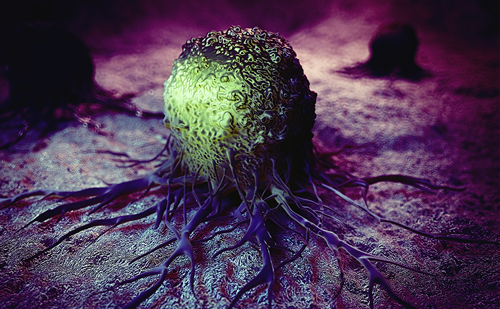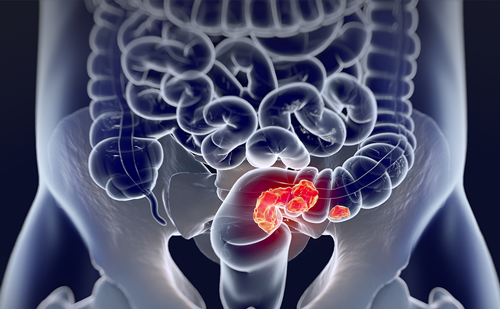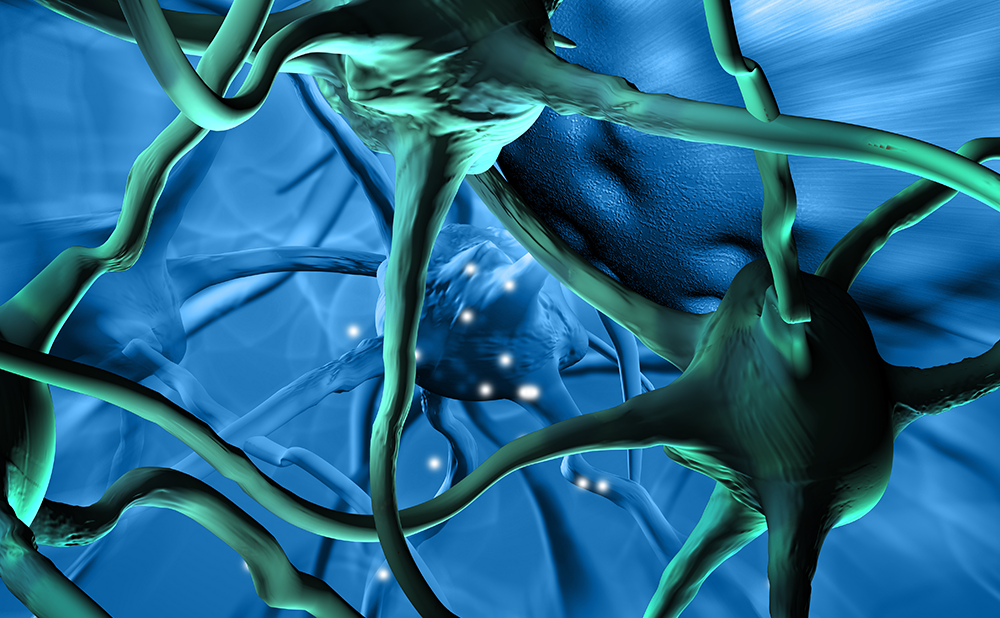Vitamin K (VK) is an essential vitamin existing in three different forms including phylloquinone (VK1) in green leafy vegetables, menaquinone (VK2), which is produced by the intestinal flora and menadione (VK3), a synthetic VK congener. The physiological function of VK is a co-factor of the enzyme gamma-glutamyl-carboxylase, which converts glutamate (Glu) residues into gamma-carboxy Glu (Gla). Since VK2 has a pivotal role in bone formation,3 VK2 is widely used as a therapeutic drug for osteoporosis in Japan.
Vitamin K2 and Antiproliferative Effects on Cancer
VK2 has been demonstrated to exhibit an antiproliferative action towards a variety of cancer cells including lung cancer, ovarian cancer and acute myeloid leukemia cells. For example, VK2 inhibited the growth of lung carcinoma cells in a dose-dependent manner.4 Although the precise mechanisms by which VK2 inhibited the growth of these cancer cells are largely unknown, VK2 induced cell-cycle arrest and apoptosis depending on the cell types.4,5 In ovarian cancer cells, an involvement of oxidative stress has been proposed as one of the mechanisms of how mitochondrial membranes are damaged by VK22 with subsequent release of cytochrome C, activations of procaspase-3 and, eventually, the induction of apoptosis.6
In addition to the above in vitro studies, there are some case studies demonstrating that oral administration of VK2 was effective for treating patients with myelodysplastic syndrome (MDS) and acute leukaemia.7,8 When an 80-year-old woman with MDS was dosed with VK2 at 45mg daily (a dose effective in improving osteoporosis) her pancytopenia gradually improved, possibly by way of inducing differentiation.7 To substantiate these findings that VK2 may be useful for the treatment of patients with a variety of cancers, large-scale clinical studies will be necessary. Vitamin K2 and Hepatocellular Carcinoma
The growth inhibitory effects of VK2 on hepatocellular carcinoma (HCC) cells were first described by Carr’s group in 1995. They showed that escalating doses of VK2 inhibited the growth of Hep3B and Hep40 cells via increased expression of c-myc and c-jun genes, respectively.9,10 Subsequently, the mechanisms by which VK2 exhibits antiproliferative action on HCC cells have been intensively investigated.
Otsuka et al. reported that VK2 inhibited the growth of HCC cells in vitro and in vivo via the activation of protein kinase A (PKA), which is a common regulator of antiproliferative transcriptional factors including activating enhancer-binding protein (AP-2), upstream transcription factor-1 (USF-1) and cyclic adenosine monophosphate response elementbinding protein (CREB).11 Cell-cycle arrest at the G1 phase by VK2 has been demonstrated by several investigators. Enhanced messenger RNA (mRNA) expressions of p1612 and p2113 have been proposed as the mechanisms of cell-cycle arrest by VK2. Recently, Ozaki et al. published an elegant work demonstrating that VK2 inhibited the growth of HCC cells via suppression of cyclin D1 expression through the IκB kinase (IKK)/IκBnuclear factor κB (NF-κB) signalling pathway.14
Although it is controversial, apoptosis appears, in part, to be involved in the growth-inhibitory effects of VK2. We have demonstrated that VK2 inhibited the growth of Hep3B cells by cell-cycle arrest at the G1 phase and induction of apoptosis.15 VK2-induced cell-cycle arrest and subG1 fraction by flowcytometry analysis (see Figure 1) and nuclear condensation and fragmentation, which are hallmarks of apoptosis, by Hoechst 33258 staining (see Figure 1). Furthermore, we have demonstrated that VK2-activated extracellular signal-regulated kinase (ERK), a signalling molecule involved in the regulation of cell survival and sensitivity to chemotherapeutic agents,16 functions in a mitogen-activated ERK-regulating kinase (MEK)-dependent manner in HCC cells (see Figure 2). When ERK was inhibited by a MEK inhibitor U0126, apoptosis caused by VK2 was further enhanced (see Figure 2), demonstrating that MEK/ERK inhibition could sensitise HCC cells to VK2.
In addition to in vitro evidence that VK2 directly inhibited the growth of HCC cells, preventative effects of VK2 on hepatocarcinogenesis have been shown in vivo as well. In a diethyl nitrosamine (DEN)-induced HCC model in mice and rats, treatment with VK2 significantly inhibited the development of pre-neoplastic foci associated with suppression of angiogenesis, which was accelerated when combined with an angiotensin-converting enzyme inhibitor (ACE-I) perindopril.17,18
There is an increasing body of clinical evidence that VK2 exhibited preventative effects on the development of HCC. Habu et al. reported that VK2 prevented the development of HCC when administered to patients with viral cirrhosis.19 In that report, HCC was detected in two of the 21 patients given VK2 at 45mg daily and in nine of the 19 patients in the control group, revealing that the cumulative incidence of HCC in the treatment group with VK2 was significantly lower than that in the control group. Preventative effects of VK2 on the recurrence of HCC after curative therapies have also been reported.20,21 Interestingly, there are two recent case reports demonstrating that a dysplastic nodule and HCC were successfully treated with VK2 when combined with angiotensin-converting enzyme (ACE)-I22 and vitamin E,23 respectively. Currently, we are conducting a larger-scale clinical study to verify the preventative effects of VK2 on the recurrence of HCC.
Conclusion and Perspective
As the prognosis of patients with HCC is dismal, the discovery of novel drugs useful for the prevention and treatment of HCC is an urgent need. VK2 may become a new strategy for chemoprevention and treatment of HCC.



